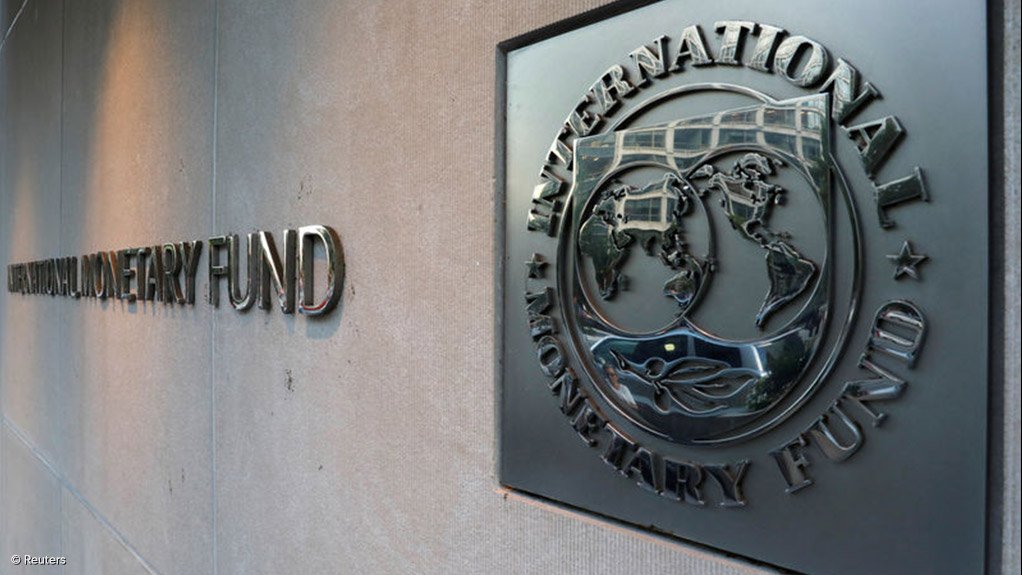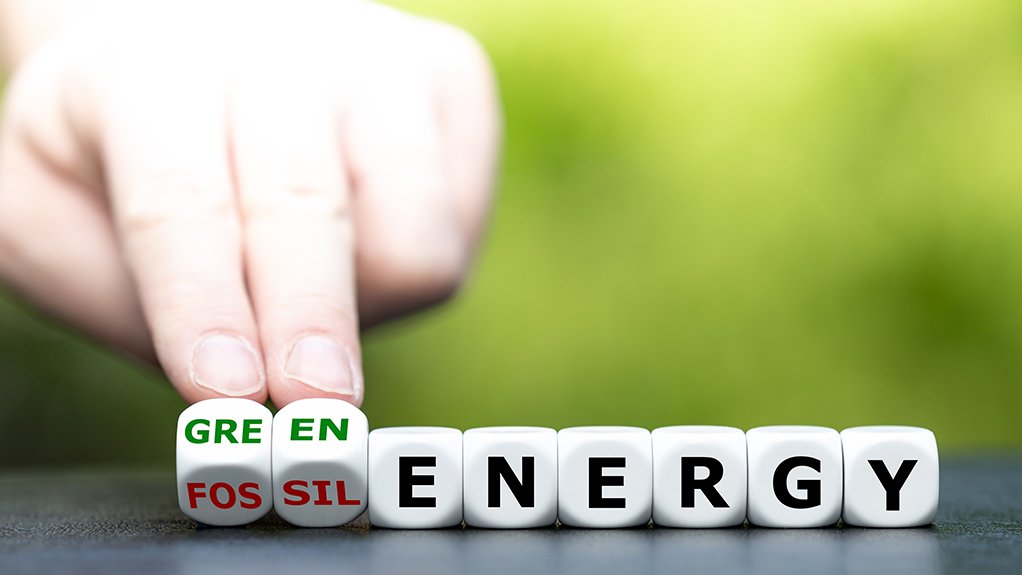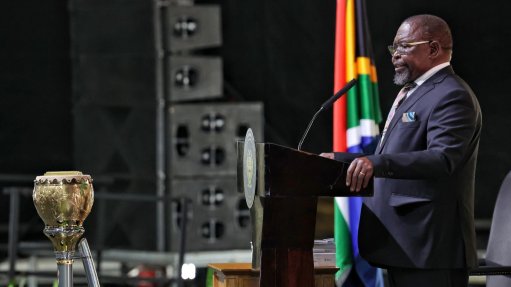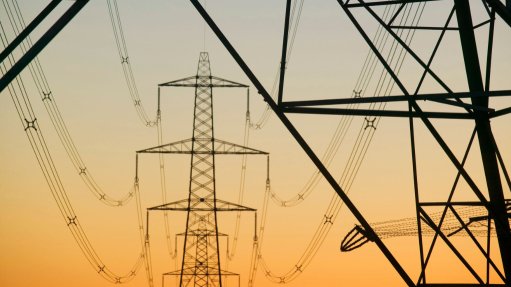New SAIIA paper highlights IMF's role in supporting South Africa's just transition
Global finance organisation the International Monetary Fund (IMF) has an important role to play in supporting South Africa’s just transition away from fossil-fuel dependence, independent think-tank the South African Institute of International Affairs (SAIIA) has found.
The organisation this week launched a new research paper that seeks to explore the potential role of the IMF in supporting the country’s just energy transition.
Speaking at the launch of the paper on March 1, social justice organisation Oxfam South Africa global impact manager Marianne Buenaventura Goldman said many South Africans – including key decision-makers – did not fully understand the role of the IMF in influencing economic policy.
“We hope that this paper will help broaden the understanding. This paper will help to share knowledge related to the IMF mandate and its operations in the country and communicate the potential for multiple stakeholders to engage with the IMF in South Africa,” she said.
The IMF is charged with ensuring the stability of the international monetary system, with a broad mandate and significant ability to influence economic policy on a global scale.
Through its lending, surveillance and capacity-building activities, the IMF plays a critical role in influencing the policies that governments adopt to achieve macroeconomic stability through its interactions with the finance ministries and central banks of countries around the world.
The SAIIA paper was commissioned by Oxfam South Africa because the country is a priority country for the IMF owing to its status as one of the world’s top 20 emitters of greenhouse gases.
South Africa’s continued dependence on coal for its energy is exacerbated by its dependence on coal as a key export commodity. This dependency translates into greater macroeconomic vulnerabilities.
The paper – which was co-authored by SAIIA CE Elizabeth Sidiropoulos and legal consultancy Climate Legal director Olivia Rumble – noted that the IMF’s role has extended to macro-critical issues, such as climate change, over the past decade.
However, the governments of developing countries and civil society have heavily criticised the IMF’s policy prescriptions over the past 40 years for exacerbating social and economic challenges and inequalities rather than alleviating them.
The main criticisms levelled against the IMF relate to its governance and policy prescriptions, and the related consequences for economic and social human rights.
The IMF’s quota system, which determines the voting power of each country, means that developing economies that need assistance the most are the ones that have the least say in the organisation.
These critiques of the IMF are important in considering what role, if any, the IMF can play in climate change and in South Africa’s just transition more specifically, Sidiropoulos noted.
She explained that international finance institutions – such as the IMF – could undermine considerable domestic work already done in terms of seeking a nationally determined agreement on the scope and content of a just energy transition.
By using different understandings and definitions of a just energy transition and imposing that conceptualisation in their eligibility conditions or finance requirements, the IMF might act in a manner that conflicts with national determinations or interpretations, Rumble pointed out.
This could also occur through the imposition of social or austerity measures within loan conditionality that “actively undermine” the deeply social and public nature of the activities which that finance is seeking to support, she said.
Sidiropoulos added that, as the guardian of the international monetary and financial system, the IMF would need to develop macroeconomic policy advice that responded to the significant challenge of transitioning economic systems to tackle climate change without destroying the most vulnerable populations and societies in the process.
The paper notes many of the challenges that South Africa faces in terms of making its energy transition just. These challenges range from the underlying structural problems linked to the apartheid legacy, to new ones brought on by the growing urgency of the energy transition away from coal.
To manage this effectively, the authors say South Africa will need a whole-of-government approach, combined with effective consultation and collaboration with non-State actors.
If poorly managed, South Africa’s transition may have significant social and economic costs and run the great risk of exacerbating the country’s poverty and inequality.
The authors note that the South African government will need to capacitate itself across all levels of government to engage effectively with the IMF on macro-critical factors and the just energy transition.
The State should further make proactive decisions about the areas in which IMF technical assistance may be helpful, but it should not allow “mission creep”, which is the gradual or incremental expansion of the mission beyond its original scope and goals, which the authors warn can happen imperceptibly.
Article Enquiry
Email Article
Save Article
Feedback
To advertise email advertising@creamermedia.co.za or click here
Announcements
What's On
Subscribe to improve your user experience...
Option 1 (equivalent of R125 a month):
Receive a weekly copy of Creamer Media's Engineering News & Mining Weekly magazine
(print copy for those in South Africa and e-magazine for those outside of South Africa)
Receive daily email newsletters
Access to full search results
Access archive of magazine back copies
Access to Projects in Progress
Access to ONE Research Report of your choice in PDF format
Option 2 (equivalent of R375 a month):
All benefits from Option 1
PLUS
Access to Creamer Media's Research Channel Africa for ALL Research Reports, in PDF format, on various industrial and mining sectors
including Electricity; Water; Energy Transition; Hydrogen; Roads, Rail and Ports; Coal; Gold; Platinum; Battery Metals; etc.
Already a subscriber?
Forgotten your password?
Receive weekly copy of Creamer Media's Engineering News & Mining Weekly magazine (print copy for those in South Africa and e-magazine for those outside of South Africa)
➕
Recieve daily email newsletters
➕
Access to full search results
➕
Access archive of magazine back copies
➕
Access to Projects in Progress
➕
Access to ONE Research Report of your choice in PDF format
RESEARCH CHANNEL AFRICA
R4500 (equivalent of R375 a month)
SUBSCRIBEAll benefits from Option 1
➕
Access to Creamer Media's Research Channel Africa for ALL Research Reports on various industrial and mining sectors, in PDF format, including on:
Electricity
➕
Water
➕
Energy Transition
➕
Hydrogen
➕
Roads, Rail and Ports
➕
Coal
➕
Gold
➕
Platinum
➕
Battery Metals
➕
etc.
Receive all benefits from Option 1 or Option 2 delivered to numerous people at your company
➕
Multiple User names and Passwords for simultaneous log-ins
➕
Intranet integration access to all in your organisation






















